International
Energy crisis pushes nuclear comeback worldwide
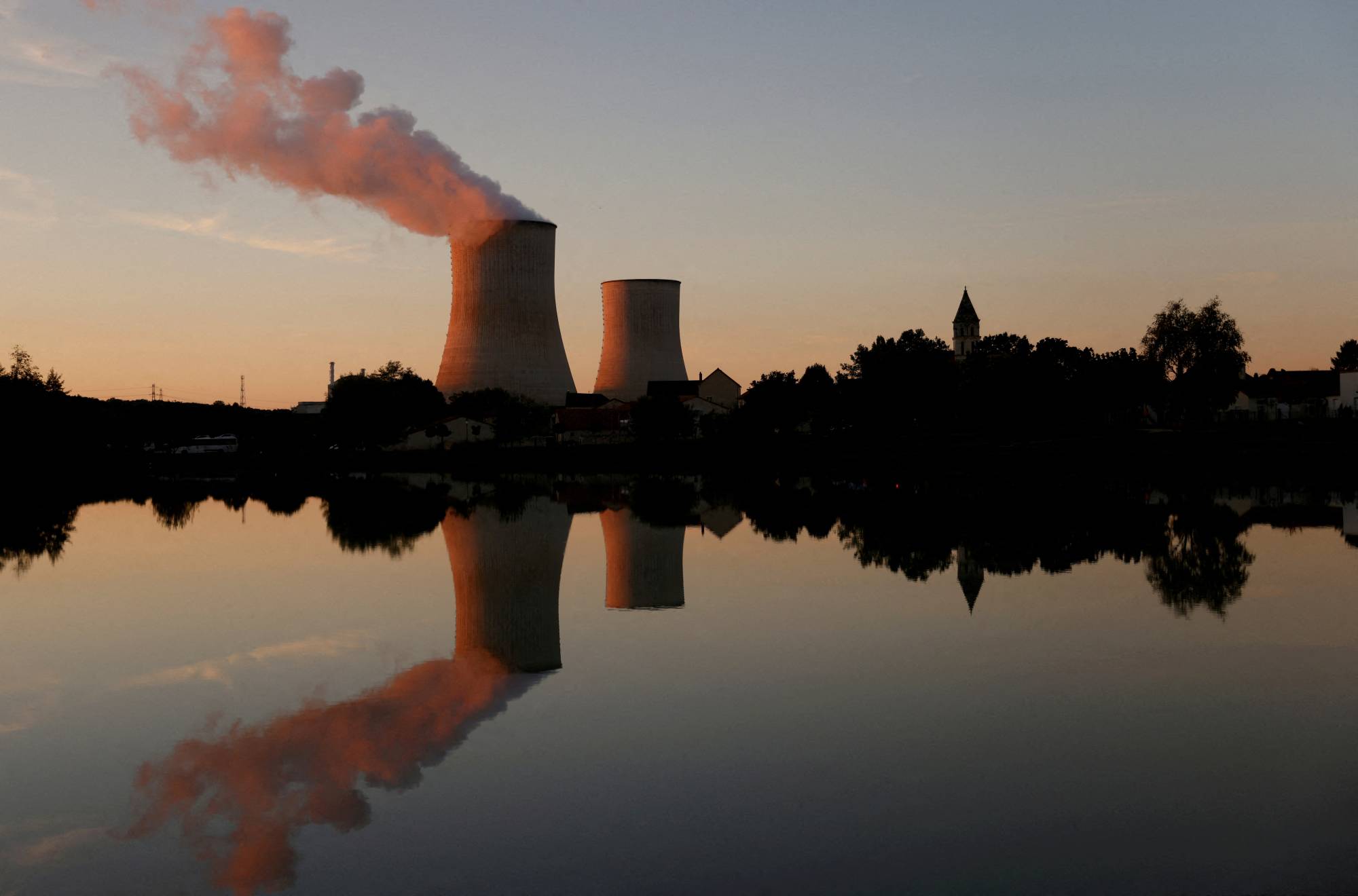
AFP
As the costs of importing energy soars worldwide and climate crises wreak havoc, interest in nuclear power is on the rise with nations scrambling to find alternative sources.
Investment in nuclear power declined after Japan’s 2011 Fukushima disaster, the world’s worst nuclear accident since Chernobyl in 1986, as fears over its safety increased and governments ran scared.
But following Moscow’s invasion of Ukraine in February, the subsequent squeeze on energy supplies and Europe’s push to wean itself off of Russian oil and gas, the tide is now turning back in favour of nuclear.
Governments face difficult decisions with rising gas and electricity bills and scarce resources threatening to cause widespread suffering this winter.
Some experts argue that nuclear power should not be considered an option, But others argue that, in the face of so many crises, it must remain part of the world’s energy mix.
One of the countries reconsidering nuclear energy is Japan, where the 2011 accident led to the suspension of many nuclear reactors over safety fears.
This week Japan’s Prime Minister Fumio Kishida called for a push to revive the country’s nuclear power industry, and build new atomic plants.
Other countries that were looking to move away from nuclear have discarded those plans — at least in the short term.
Less than a month after Russia’s attack on Ukraine, Belgium delayed by a decade its plan to scrap nuclear energy in 2025.
While nuclear power, currently used in 32 countries, supplies 10 percent of the world’s electricity production, the International Atomic Energy Agency (IAEA) raised its projections in September for the first time since the 2011 disaster.
The IAEA now expects installed capacity to double by 2050 under the most favourable scenario.
– Climate reasoning –
Even in Germany, Europe’s biggest economy, sticking with nuclear is no longer a taboo subject as the energy crisis rekindles debate on shutting down the country’s last three nuclear power plants by the end of 2022.
Berlin said last month it would await the outcome of a “stress test” of the national electric grid before deciding whether to stick with the phaseout.
Greenpeace Germany’s climate and energy expert, Gerald Neubauer, said turning to nuclear was “not a solution to the energy crisis”.
He said nuclear energy would have “limited” efficacy in replacing Russian gas since it is mainly “used for heating” in Germany not for electricity production.
“The reactors would only save the gas used for electricity, it would save less than one percent of the gas consumption,” he added.
But according to Nicolas Berghmans, energy and climate expert at the IDDRI think tank, extending the use of nuclear “can help”.
“Europe is in a very different energy situation, with several overlapping crises: the problem of Russian gas supply, the drought that has reduced the capacity of dams, the French nuclear plants’ weak output… so all the levers matter,” he said.
The pro-nuclear lobby says it is one of the world’s best options to avoid climate change since it does not directly emit carbon dioxide.
In fact, nuclear energy accounts for a bigger share of the world power mix in most of the scenarios put forward by the IPCC, the UN’s climate experts, to alleviate the global climate crisis.
– Divided opinions –
As the need for electricity booms, several countries have expressed a desire to develop nuclear infrastructure including China — which already has the largest number of reactors — as well as the Czech Republic, India and Poland since nuclear offers an alternative to coal.
Likewise, Britain, France and the Netherlands have similar ambitions, and even the United States where President Joe Biden’s investment plan encourages the sector’s development.
The IPCC experts recognise that the deployment of nuclear energy “can be constrained by societal preferences” since the subject still divides opinion because of the risk of catastrophic accidents and the still unresolved issue of how to dispose of radioactive waste safely.
Some countries, like New Zealand, oppose nuclear, and the issue has also been hotly debated in the European Union over whether it should be listed as a “green” energy.
Last month, the European Parliament approved a contentious proposal giving a sustainable finance label to investments in gas and nuclear power.
Other issues remain over nuclear infrastructure including the ability to build new reactors with costs and delays tightly controlled.
Berghmans pointed to “long construction delays”.
“We’re talking about medium-term solutions, which won’t resolve tensions in the market”, as they will arrive too late to address climate crises, he said, but suggested focusing on the “dynamic” renewable energies sector that can be immediately helpful.
International
Colombia slams Ecuador’s 30% tariff as ‘economic aggression’
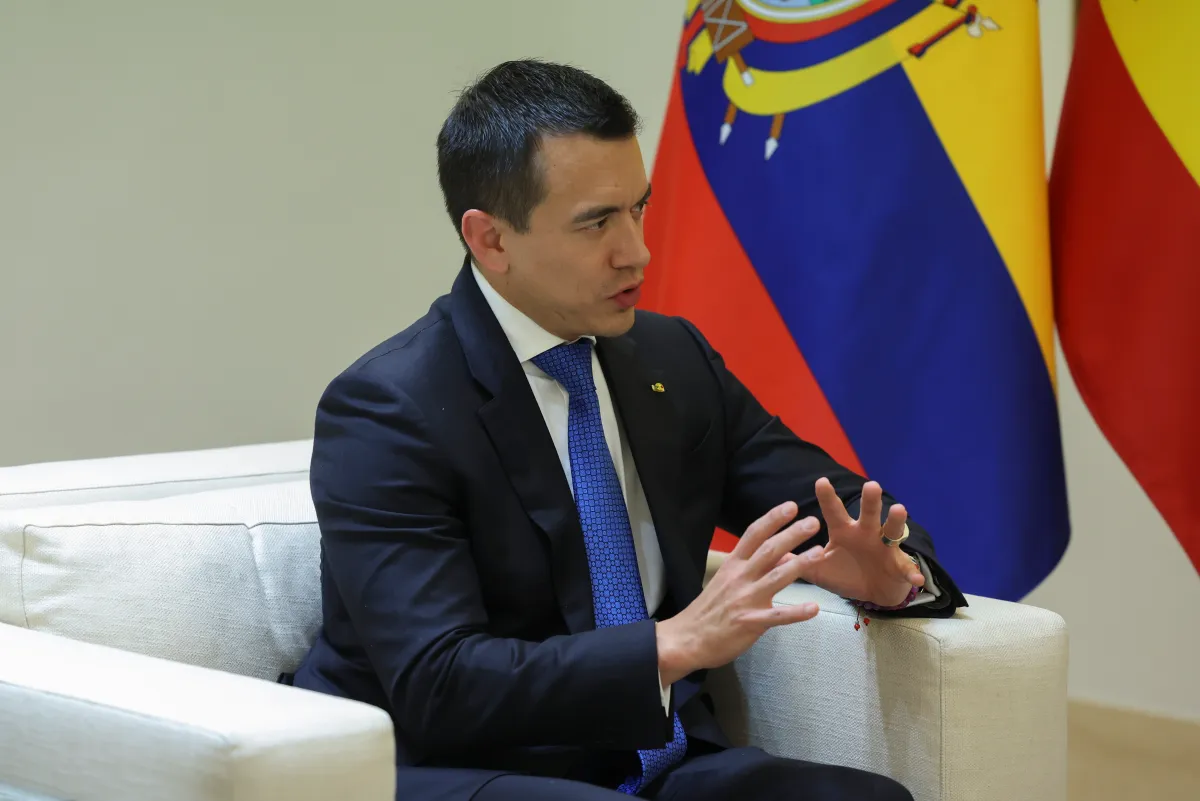
Colombia’s Minister of Mines and Energy, Edwin Palma, on Wednesday described as an “economic aggression” the 30% “security fee” imposed by Ecuadorian President Daniel Noboa on imports from Colombia.
“We reject the tariff measure imposed by Ecuador, an economic aggression that breaks the principle of regional integration,” Palma said in a post on X.
President Noboa explained that the decision was taken due to what he described as a “lack of reciprocity and firm actions” by Colombia in the fight against drug trafficking. He added that despite Ecuador having made “real efforts of cooperation,” including maintaining a trade deficit exceeding $1 billion annually, the country’s armed forces continue to face drug-linked criminal groups along the border without any cooperation.
For that reason, Noboa stated that the measure will remain in place “until there is a real commitment” from Colombia to jointly confront drug trafficking and illegal mining along the 586-kilometer shared border, with the same level of determination Ecuador is currently applying.
According to official data, Ecuador seized 214.5 metric tons of drugs in 2025, down from the record 294.6 tons confiscated in 2024.
Colombian President Gustavo Petro said on January 7 that during his administration, which began on August 7, 2022 and ends this year, drug seizures have increased significantly, adding that total confiscations are expected to exceed 3,500 tons by the time he leaves office.
International
José Jerí claims destabilization attempt after videos of secretive meetings surface
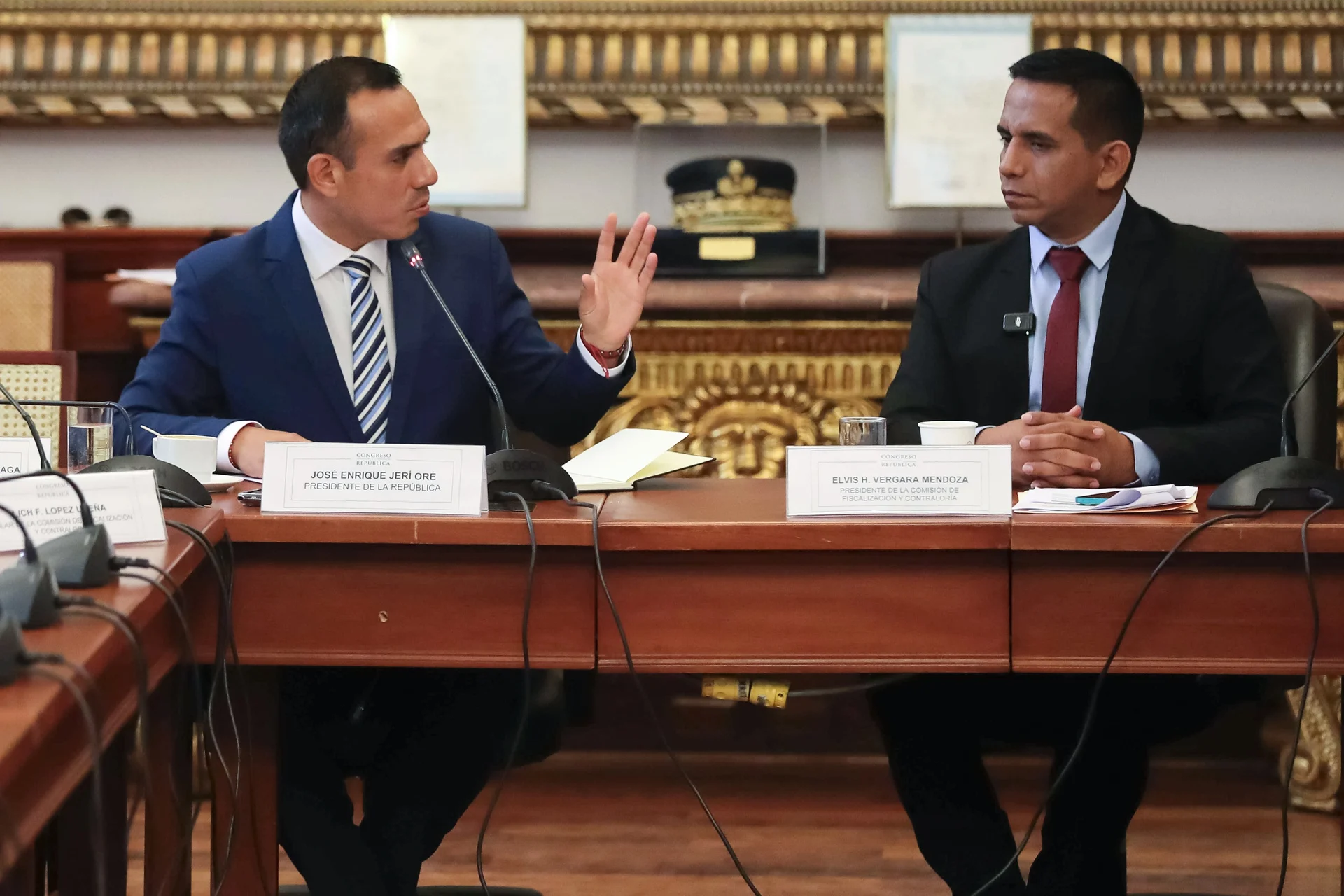
Peru’s interim president, right-wing leader José Jerí, on Wednesday denounced an alleged plot against him and warned of a deliberate attempt to destabilize the country, following the release of a series of videos showing semi-clandestine meetings with a Chinese businessman, as well as visits to the Government Palace by another businessman of the same nationality who is under house arrest.
“I also want to know who is behind this entire plot. I am an objective and impartial president who does not give in to pressure, but someone has found a way to do so. I want to know who is behind it and what their real objective is,” Jerí said while appearing before Congress’ Oversight and Comptroller Commission.
The interim president, who recently marked 100 days in office after replacing former president Dina Boluarte (2022–2025) in his role as head of Congress, insisted that he has never lied to the country. Without directly accusing any individual or group, he argued that routine activities—such as visiting a restaurant or a shop—are being portrayed with a “malicious” intent.
So far, reports indicate that on December 26, close to midnight, Jerí visited a chifa restaurant—a Peruvian-Chinese eatery—owned by Chinese businessman and state contractor Zhihua “Johnny” Yang, accompanied by Interior Minister Vicente Tiburcio, and wearing a hood. On January 6, he also visited a shop belonging to the same businessman, which had been shut down by municipal authorities just hours earlier.
The revelations have fueled political controversy and renewed scrutiny of the interim administration’s actions amid Peru’s ongoing political instability.
International
Mexican influencer “La Nicholette” kidnapped in exclusive area of Culiacán

The content creator known as “La Nicholette,” also referred to as “La Muchacha del Salado,” was kidnapped Tuesday afternoon in Isla Musalá, one of the most exclusive residential areas of Culiacán, capital of the northern Mexican state of Sinaloa, according to local media reports on Wednesday.
The abduction was captured by the security camera of the young woman’s vehicle, a lilac-colored Tesla Cybertruck, which was later found abandoned at the scene.
Video footage circulating on social media shows a masked man carrying a long firearm preventing the influencer from entering her vehicle, while another individual forces her into a white sedan, reportedly an older-model Toyota Corolla.
According to media reports, the incident occurred at approximately 5:00 p.m. local time (2300 GMT) at the intersection of Tachichilte Avenue and San Esteban Street, within the Musalá residential area.
Authorities have not yet released official details regarding the victim’s whereabouts or the motives behind the kidnapping.
-

 International2 days ago
International2 days agoDeath toll from southern Spain train crash rises to 40
-

 International5 days ago
International5 days agoU.S. deportation flight returns venezuelans to Caracas after Maduro’s ouster
-

 Central America2 days ago
Central America2 days agoGuatemala raises police death toll to nine after gang violence escalates
-

 Central America3 days ago
Central America3 days agoGuatemala prison uprisings leave 46 guards held by gangs
-

 International2 days ago
International2 days agoOver 160 christian worshippers kidnapped in Kaduna Church attacks
-

 International1 day ago
International1 day agoDaily Mail publisher insists reports relied on legitimate sources amid privacy trial
-

 International5 hours ago
International5 hours agoMexican influencer “La Nicholette” kidnapped in exclusive area of Culiacán
-

 International3 days ago
International3 days agoChile declares state of catastrophe as wildfires rage in Ñuble and Biobío
-

 International1 day ago
International1 day agoGermany says football bodies alone will decide on possible World Cup boycott
-

 International5 days ago
International5 days agoFormer South Korean President Yoon sentenced to five years in prison
-

 International2 days ago
International2 days agoSpain’s Prime Minister pledges transparency after train crash kills at least 39
-

 International6 hours ago
International6 hours agoTrump announces preliminary NATO agreement on Greenland, suspends tariffs on Europe
-

 International5 hours ago
International5 hours agoMajor winter storm to blanket U.S. and Canada with snow, ice and arctic cold
-
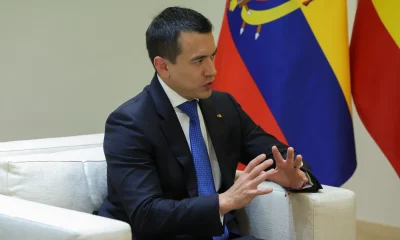
 International4 hours ago
International4 hours agoColombia slams Ecuador’s 30% tariff as ‘economic aggression’
-
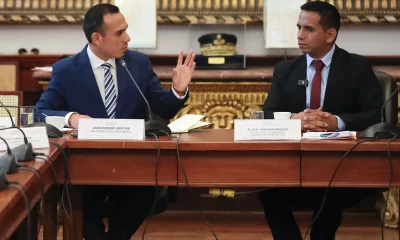
 International4 hours ago
International4 hours agoJosé Jerí claims destabilization attempt after videos of secretive meetings surface


























